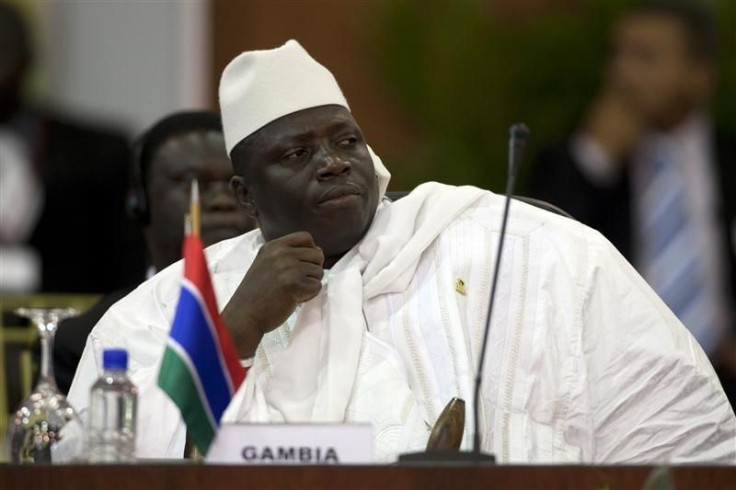Death Row Deadline Approaches In The Gambia: Will 38 Inmates Survive The Weekend?

If Gambian President Yahya Jammeh sticks to his word, Saturday will be the end of the line for 38 death row inmates.
On Aug. 19, Jammeh promised that 47 inmates would be shot by Sept. 15, according to a report form Amnesty International. He then ordered firing squad executions of nine convicts, which took place on Aug. 23. Those were the first state-sponsored executions since 1985.
There has been no official word on the death row deadline since then, but human rights organizations will keep a close watch on the situation as Sept. 15 comes and goes.
Audrey Gaughran, the Africa Director for Amnesty International, said in the report that these prisoners could very well be innocent of serious crimes.
"Unfair trials are commonplace in the country, where death sentences are known to be used as a tool against the political opposition and international standards on fair trials are not respected", she said.
"The number of grossly unfair trials is shocking and an especially serious concern in cases where the death penalty is handed down."
Jammeh first came to power in a 1994, following a military coup. The Telegraph reports that in a stroke of luck, then-sergeant Jammeh was the first soldier to reach the presidential palace after the former leader had fled. The lowly noncommissioned officer quickly claimed power for himself, and has ruled ever since.
His tenure has been full of outlandish episodes. Jammeh once claimed to have invented an herbal cure for AIDS. He has prosecuted suspected sorcerers in an attempt to avenge the death of his aunt. He even created a new title for himself: "His Excellency Sheikh Professor Doctor President."
Under his rule, the Gambia has suffered slow development and economic stagnation.
This tiny sliver of a West African country stretches along the Gambia River. It is surrounded on all sides by Senegal, except where a narrow coastline abuts the Atlantic Ocean. Nearly half of its nearly 2 million people live below the poverty line, according to the CIA.
The national economy depends largely on international aid; other revenues come from worker remittances, agriculture, and tourism. Critics of Jammeh say he squanders public money on wasteful projects at the expense of infrastructure, healthcare and education.
The Gambia has a nominally democratic political system, though the last presidential election was widely condemned as rigged. Jammeh claimed 72 percent of a popular vote in November of 2011, securing another five years in office.
© Copyright IBTimes 2024. All rights reserved.






















